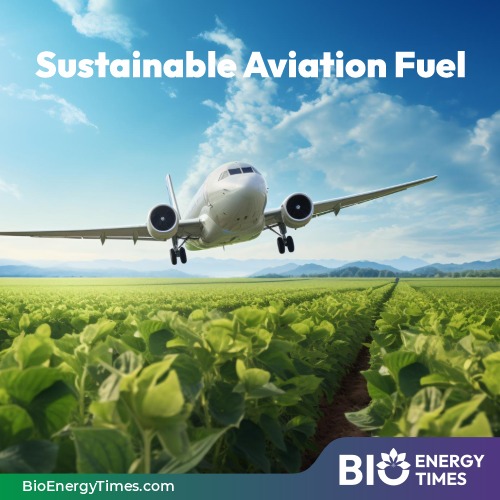Ricardo, a global strategic environmental and engineering consulting company, has been selected by the European Union Aviation Safety Agency (EASA) to lead a consortium that will establish Europe’s inaugural Sustainable Aviation Fuel (SAF) Clearing House.
Collaborating with consortium members Trinity College Dublin, Intertek, Politecnico di Torino, ENVISA, and Spark Legal and Policy Consulting, Ricardo experts will create a network of European and international testing facilities. Their role includes guiding fuel producers in assessing the environmental impacts of their products and ensuring compliance with rigorous eligibility criteria. The EU SAF Clearing House has already received its initial sustainable aviation fuel and is currently conducting testing.
Maria Rueda, EASA’s Strategy & Safety Management Director, stated, “The demand for SAF is expected to grow significantly to meet the objectives outlined in the ReFuelEU Aviation Regulation, aimed at progressively reducing aviation emissions. Through the EU SAF Clearing House, EASA aims to provide the necessary support to the fuel industry in developing SAF for aviation. This initiative ensures that innovation efforts are effectively supported and contributes to increasing SAF availability in the market.”
Sustainable aviation fuels (SAFs) serve as non-conventional drop-in alternatives to traditional petroleum-derived hydrocarbons, directly replacing fossil-based aviation fuel with a reduced carbon footprint on a 1:1 basis. Seen as the most viable near-to-medium-term approach for reducing CO2 emissions from aviation and meeting regulatory targets, SAFs are crucial for industry sustainability.
The ReFuelEU Aviation Regulation, adopted in 2023, mandates a gradual increase in SAF production within European aviation, targeting 2% by 2025, 6% by 2030, and potentially up to 70% by 2050. Currently, SAFs represent less than 0.05% of total EU aviation fuel consumption. Scaling up production to meet commercial demands has proven challenging, requiring new products to adhere to stringent specifications and undergo rigorous testing before deployment in commercial aircraft.
Similar to initiatives in the US and UK, the EU SAF Clearing House will facilitate the approval of new SAF pathways using the ASTM D4054 process—a recognized industry standard for evaluating aviation fuels and additives. Serving as a virtual forum, it will offer expertise on data quality, testing facilities, and qualification requirements, thereby reducing certification costs and complexity—a critical step towards enhancing production volumes and encouraging diverse feedstock utilization.
Moreover, the EU SAF Clearing House will provide sustainability services to potential fuel producers, foster the development of a robust SAF supply chain in Europe, engage in technical forums, support research and innovation endeavors, and advocate for policy coherence.
Dr. Rui Neiva, Principal Consultant for Sustainable Transport at Ricardo and Programme Manager for the EU SAF Clearing House, anticipates significant market impact: “The Clearing House represents a pivotal milestone in advancing Europe’s transition towards a cleaner, more sustainable aviation sector. Certification of new fuels will unlock opportunities for expanded SAF production and diversification of feedstocks. Drawing from our extensive experience in fostering collaboration among technical organizations across automotive, aerospace, and urban transit sectors, we are poised to deliver a service known for efficiency, impartiality, and profound technical insight. We look forward to partnering with our consortium members, the broader aviation industry, and EASA to achieve these goals.”















